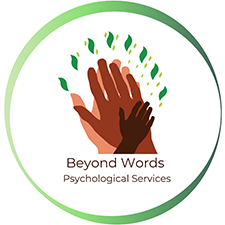THIS IS WHAT IT’S LIKE . . . Part 3
Only 10 minutes between sessions. I need to make a quick run to the restroom. As I walk to the sink, another therapist who works in the building walks in with a big smile. After a few seconds of the usual pleasantries, she asks, “Are you Indian?” Here we go…
“Yes, I am.”
“Oh, I just returned from a trip there! I visited………..” and on and on she goes, describing multiple cities, using an accent I can only assume she believes produces correct pronunciation, playing “impress the Indian.” I don’t like where this is going.
“Well, that sounds like a wonderful trip, I have to head back –“
“Where is your family from?”
And there it is. A seemingly innocuous little question that is anything but for a transracial adoptee. Five small words that have the power to open up my entire adoption story. It brings me back to all of those moments throughout my childhood when embarrassment, frustration, irritation, resentment, and awkwardness overtook me and I froze, unsure of what to say or how to say it, when I felt like I had to share that I was adopted even when I didn’t want to, because I didn’t have any other ideas about what to say.
It brings me back to that moment in eighth grade when I brought a new friend home from school and introduced her to my parents for the first time, and she said, “Whoa, you don’t look anything like your parents!” So I responded with a laugh, “Yeah, I was adopted,” assuming she was joking around because obviously I’m Asian and my parents are White. And in that split second her entire facial expression changed, her voice dripped with pity, and she repeated over and over again, “I’m sorry, I didn’t know. I’m so sorry. I’m sorry.”
It brings me back to that moment in high school when my very first Indian friends began joking about what it’s like to have Indian parents who engage in Indian traditions while living in the U.S. I remained silent and tried to laugh along, feeling like an imposter until the conversation came around to me and I uncomfortably shared that I was adopted. Suddenly everyone was uncomfortable along with me, and the subject quickly changed.
It brings me back to that moment in graduate school when another student asked me if my family or I knew anyone who was hurt by the bombings in Mumbai, and I could only look at him incredulously as I asked him to repeat his question. It seemed utterly ridiculous to ask whether I knew a few people in a country of a billion, but it seemed like only saying, “No” would be a lie on my part; I didn’t even know my family in India, and maybe they or someone they knew were affected. I felt like I had to share that I was adopted and had never traveled there.
It brings me back to the moments in elementary school when kids asked why my mom didn’t look like me over and over again as she volunteered in our classroom. It brings me back to the moments when people asked me if they could borrow a sari, if I could share a good curry recipe, or if I speak Hindi. It brings me back to every single time I shared that I was adopted for whatever reason caused me to feel compelled to share at the time, and it was immediately followed by the person staring at me like I was a zoo animal and asking, “Do you know your REAL parents?”
And I have to gather myself in that restroom. I have to remind myself that I am adult now, that I teach young adoptees how to maintain privacy around their own adoption stories, how to set firm boundaries, how to recognize whether they can trust someone and share parts of their story, and how to put accountability back on the other person when the question is insensitive.
“Where is your family from?”
“Well, *I* was born in Calcutta. I have to get back to my office now, I’ll see you later!”
She looks confused, but doesn’t pry because my tone has made it clear that the conversation is over. “Oh, well… that’s wonderful. Sure, bye now!”
I walk away with a deep breath and my head held high. I didn’t have to share that I was adopted. I didn’t have to worry about the inevitable questions that follow. I chose what I wanted to share and the way that I wanted to share it, so that she knew I was making a point and that the subject was closed. I’ve given myself what I needed during those moments in eighth grade, in high school, in elementary school, in graduate school – permission to own my adoption story.
This is what it’s like to feel a sense of empowerment in my adoption story, to no longer be held captive by my story or the people who seek to open the pages that story without my permission, whether intentionally or unintentionally. This is why I created the “EMPOWRD! Ways to Respond to Adoption Questions” Workbook for Kids – because I want every young adoptee to know from the start that they are in charge of their story, that they are allowed to set privacy boundaries without guilt, that they can share parts of their story with people they trust, and that they can choose to put accountability back on others who are crossing the line of insensitivity. Please share this workbook with your children, and teach them six simple and powerful ways to respond to other people’s adoption questions, so that when they are adults, they are not caught off guard in a public restroom when they only have 10 minutes to return to their office and all they want to do is potty in peace: https://growbeyondwords.com/empowrd-workbook/
